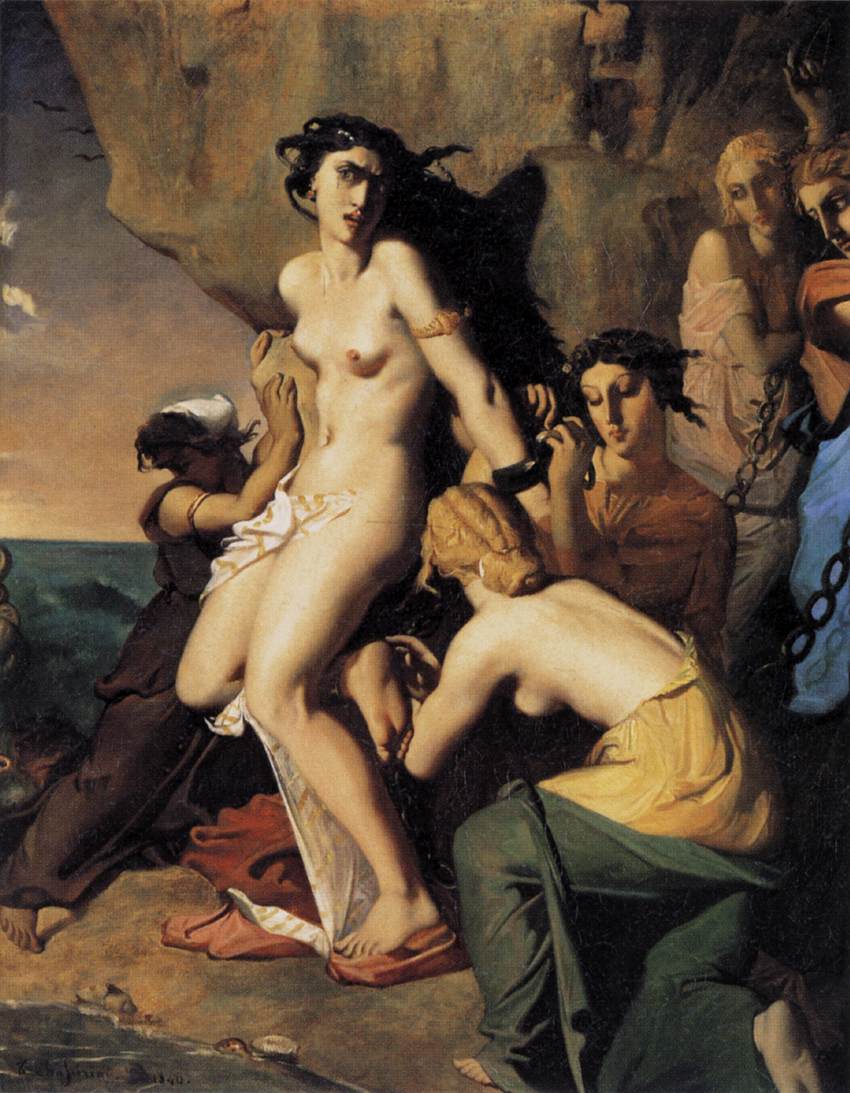Description
The painting "Andromeda and the Nereids" by Théodore Chassériau is a 19th century masterpiece that combines elements of Romanticism and Neoclassicism. The composition is impressive, with a naked and chained Andromeda in the center of the image, surrounded by a group of Nereids, mythological creatures of the sea.
Chassériau uses a soft and delicate brushwork technique to create a sense of movement and fluidity in the Nereid figures, while the Andromeda figure is rendered with a more static and solid effect. This creates an interesting contrast between the human figure and the fantastical creatures that surround it.
The color in the paint is also impressive. Chassériau uses a rich and vibrant palette of blues and greens to represent the sea and the Nereids, while Andromeda is depicted in warmer, earthier tones. This helps to highlight the human figure in the center of the image.
The story behind the painting is equally fascinating. Andromeda is a character from Greek mythology who was chained to a rock as a sacrifice to a sea monster. She was rescued by Perseus, who killed the monster and freed her. The image of a chained and vulnerable Andromeda is a common theme in art, but Chassériau depicts it in a unique and beautiful way.
An interesting and little-known fact about the painting is that Chassériau worked on it for several years and never considered it completely finished. In fact, he never signed it or displayed it publicly. It was discovered after his death and became one of his most famous works.
In short, "Andromeda and the Nereids" is a stunning painting that combines a unique artistic style, stunning composition, vibrant color palette, and a fascinating story. It is a 19th century masterpiece that remains relevant and moving today.

